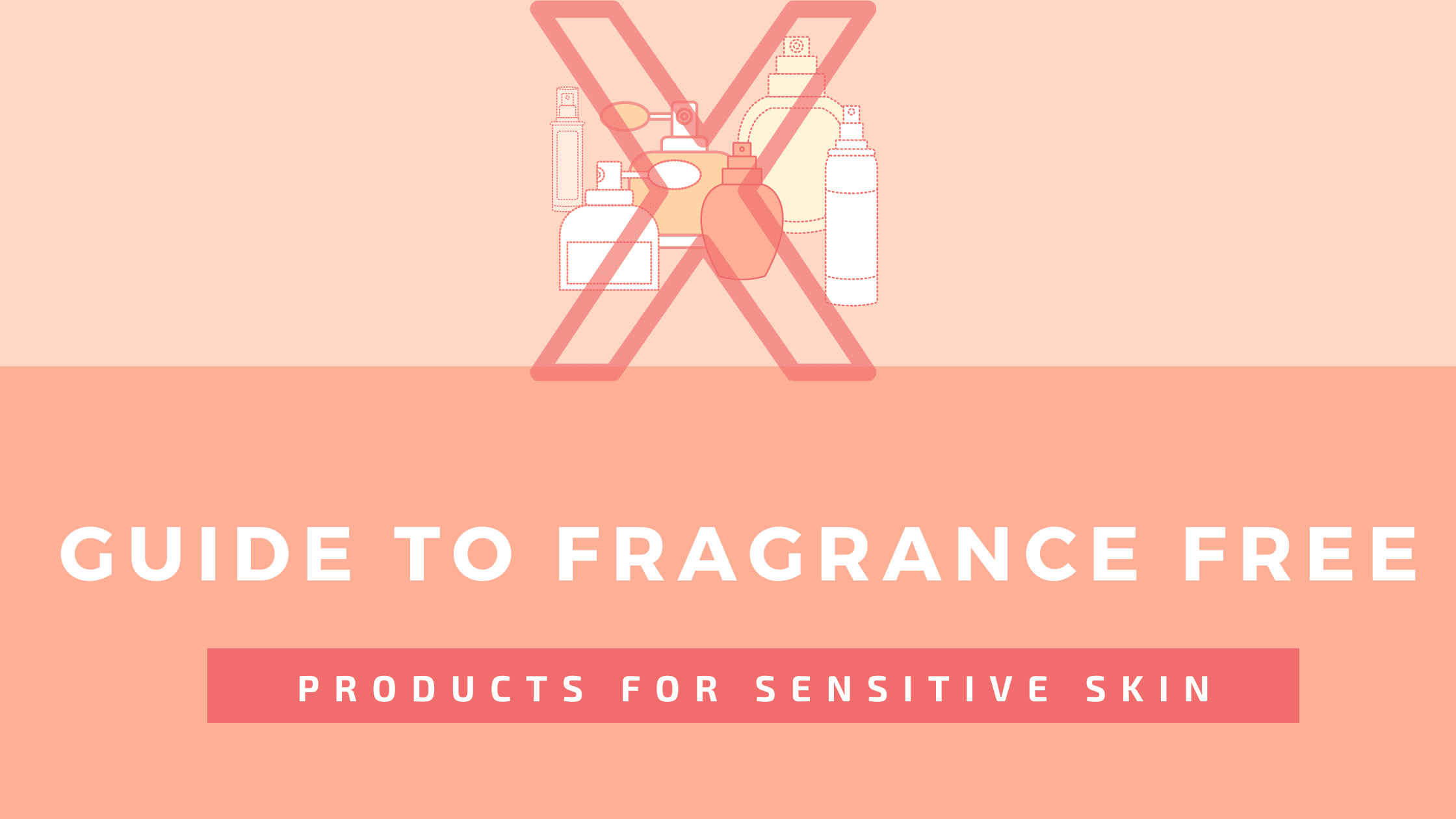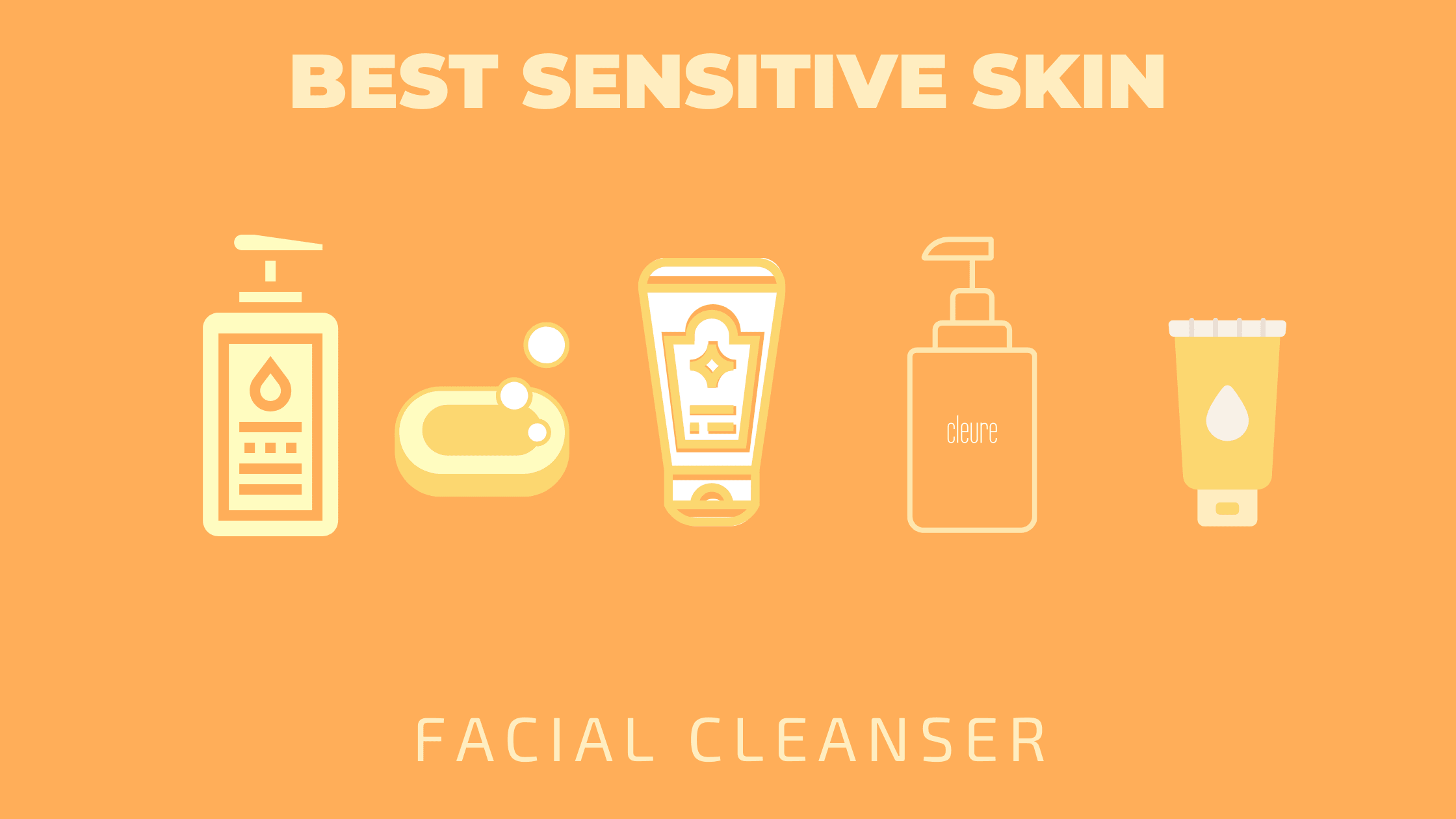
Guide to Fragrance-Free Products for Sensitive Skin
If you know you have sensitive skin, as far as skin and personal care products, fragrance-free is a must.The smell of gardenia in soap or lavender in your laundry detergent may motivate you to buy the product, but you may be wiser to choose the fragrance-free option. If you suffer with sensitive skin reactions, you may be one of the millions of individuals with fragrance sensitivity.
Even if you choose sensitive skin products, fragrance may be an ingredient on the label you may have overlooked. In the United States, sensitive skin is on the rise. Dermatologists report more than 50 percent of their patients have been diagnosed with some form of sensitive skin (American Academy of Dermatology). They also agree that one cause of irritated skin is fragrance. This article will help you understand why fragrance is so irritating for sensitive skin. Learn why you should use fragrance-free products below.
What Fragrance is Made Of
If walking by a store at the mall that sells perfumes, or just a whiff of room deodorizer or scented products makes your eye water and you want to sneeze, you are among millions who have fragrance sensitivity.
Fragrances are mostly made of essential oils and aromatic chemicals. They are typically a concentration of chemicals diluted with ethanol or a mix of ethanol and water. They may also be mixed with coconut oil, acetone, benzyl alcohol, camphor, ethyl acetate, liquid waxes and many other chemicals. The sources of the scents can be:
- Bark from cinnamon, cascarilla, sassafras and other root barks.
- Flowers and blossoms used to make fragrances include rose, jasmine, narcissus and flower buds from citrus trees, among others.
- Essential oils, extracts and tinctures derived from flowers, including orchids, vanilla beans, apples, strawberries and rind of citrus fruits. These are typically blended with ethyl alcohol and water, aged and allowed to stabilize before bottling for retail.
- Leaves, woods and twigs can also be used for fragrances, including sage, violet, rosemary, citrus leaves and lavender. Wood oils from sandalwood, birch, cedar, juniper and pine are commonly used for the base of fragrances.
- Resins from Balsam of Peru, pine, fir and even resinous secretions of fossil conifers are common in fragrances, and have been used for centuries.
- Animal sources, such as musk from the sac located between the genitals of Himalayan male Musk deer, honeybees, and secretions from whale sperm are also commonly added to fragrances.
- Other sources include oak moss, synthetic fragrances created to resemble plant scents called salicylates.
How Fragrance Irritates Sensitive Skin
There are other chemicals and compounds used for distillation and to remove unpleasant scents from a source. Also added, are chemicals to make the fragrance last long.
It's reported that more than 3,000 chemicals and compounds are used in the making of fragrances found in every day used products, such as cosmetics, skin care, personal care and household cleaning products. The Food & Drug Administration (FDA) does not require manufacturers to disclose all the ingredients in fragrances. Approximately 20% of the ingredients used have been found to be toxic or to cause allergic reactions. Most of the chemicals have never been safety tested.
Medical journals have reported the side effects of fragrances to include:
- Asthmatic flare-ups
- Headaches
- Allergic skin reactions, such as rashes and redness
- Nausea
- Affecting hormones
- Respiratory problems
- Mood altering, including anxiety
Balsam of Peru is one such ingredient often used in fragrances. It's been reported to be in the top five allergens list for sensitive skin. Fragrances often contain chemicals found to be toxic. For example, Tricylcodecenyl allyl ether added to synthetic fragrances is often used as an insect repellent.
Since many thousands of potentially toxic chemicals are used to manufacture fragrances, it's safe to conclude, whether you have sensitive skin or not, always choose fragrance-free products for sensitive skin.
Fragrance-Free Relief for Sensitive Skin
If you have some form of sensitive skin, you will do whatever it takes to find relief. You may be surprised to learn there are many marketing terms popular brands use to sell to those with sensitive skin. However, these marketing terms, such as "hypoallergenic," or "sensitive skin products", does not mean they are fragrance-free, gentle or non-toxic. To make sure you are choosing the right products, it's important to read the ingredient list, not just "key ingredients". If you don't see the complete ingredient list, contact the company and ask for the information.
Since the Food & Drug Administration (FDA) does not regulate skin care and personal care products, many dubious claims may be made on the label without any real substantiation in the form of testing.
Are Natural or Organic Fragrances Safe?
Many people assume just because an ingredient is 'natural', it must be good for you and safe. However, there are many such 'natural' products with highly irritating ingredients, including essential oils. Natural or organic fragrances are made of essential oils. Although natural, these oils can be irritating, especially to sensitive skin. Some of the most irritating natural or organic essential oils include the following:
- Cinnamon
- Citronella
- Clove
- Eucalyptus
- Ginger
- Balsam of Peru
- Mint, peppermint
- Pine
- Thyme
Best Fragrance-Free, Nontoxic Products
It's very easy for sensitive skin to get irritated. Dermatologists suggest the best way to manage sensitive skin is to avoid irritating skin care and personal care products. With all the options on store shelves claiming to be made for sensitive skin, it's a major challenge knowing which to choose.
Cleure makes it easy by providing you with 100% fragrance-free and nontoxic skin and body care. Free of such known irritants as salicylates, fragrance, sulfates and other harsh ingredients, Cleure sensitive skin products are effective and give your allergy-prone skin the relief you need and the radiant, healthy skin you deserve.



Leave a comment
This site is protected by hCaptcha and the hCaptcha Privacy Policy and Terms of Service apply.